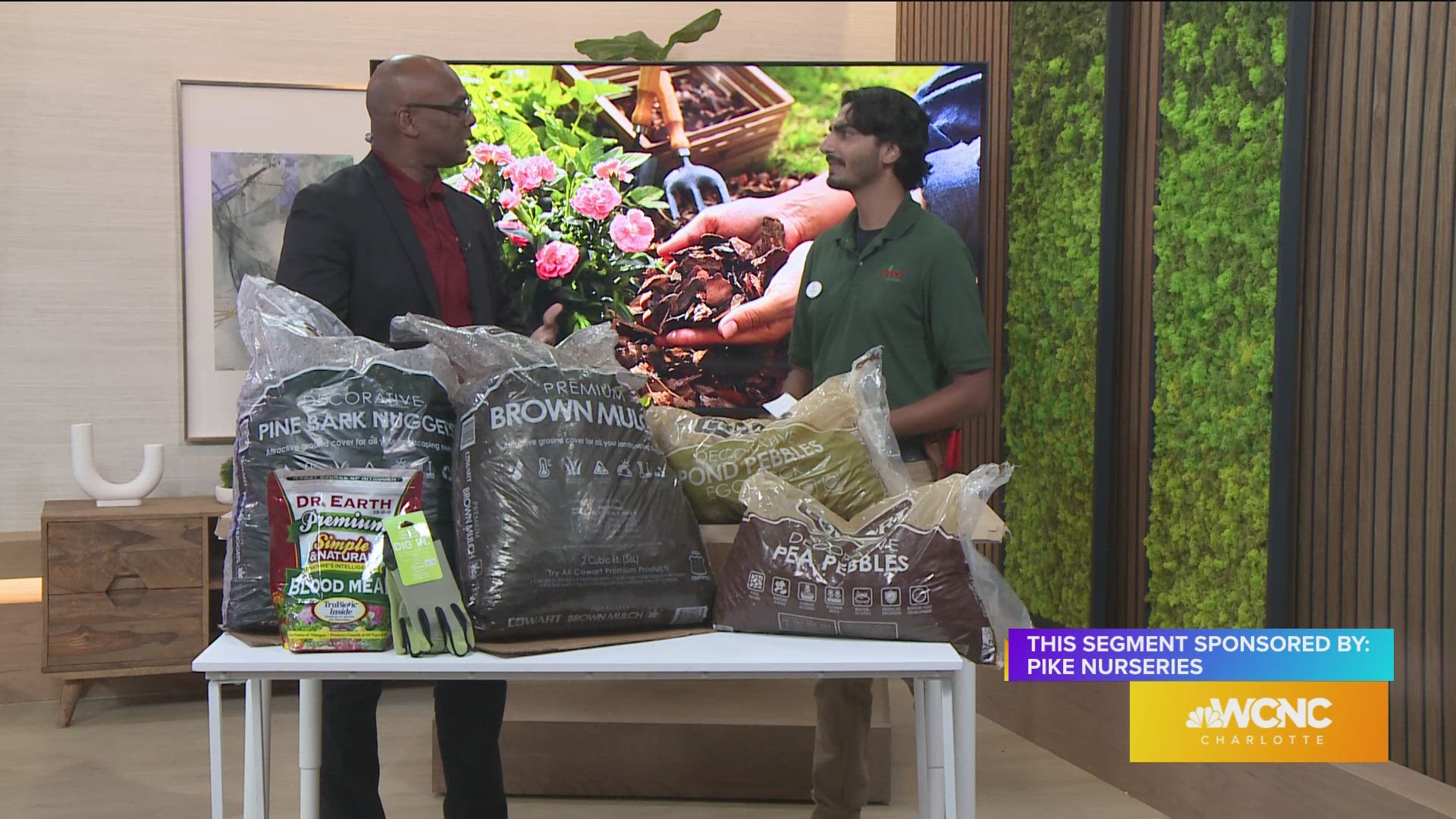CHARLOTTE, N.C. — This article involves commercial content.
The products and services featured appear as paid advertising.
This morning in our Gardening Spotlight it's all about "mulch". Here to walk us through all we need to know is Devang Oza from Pike Nursery.
“Mulch can be a gardener’s best friend” says Oza. He adds “mulch is a material that you apply on top of the soil in your garden or landscape.” It can be practically any material - pine needles, straw, shredded bark or wood chips, landscaping material, stone — you get the idea. Properly applied, mulch can help keep the soil moist, retain heat, discourage weeds, and make your garden beds look neat and tidy.
During the summer, it’s especially beneficial as it helps trap in moisture, insulate the soil and keep the unsightly weeds at bay. Not only can it save you hours of work, mulch can also prevent damage to your plants and increase your harvest. Here’s what you need to know about mulch to get the most from this invaluable gardening tool.
Basically, there are two types of mulch Organic mulch and Inorganic mulch. If it was once alive, it’s an organic mulch. Organic mulches will decay, which can add nutrients to the soil and protect your plants in other ways. The most popular organic mulches include Tree Bark , Wood Chips, and Pine Straw. Inorganic Mulch include plastic, stone, and manufactured weed cloths. They’re especially good at insulating the ground and suppressing weeds. They can be a good choice for vegetable and flower gardens also. Some popular inorganic mulches include Pea Gravel, Egg Rock, Marble Chips, and Landscape / Weed Fabric.
There are so many benefits of having much in your garden or yard. Mulch slows down the evaporation of water from the soil, so you don’t have to water as often. It insulates the soil, keeping it warmer in winter and cooler in summer. Your plants’ roots will love you for it. As a result, mulch is invaluable in the early spring and late fall, when temperatures can suddenly drop during the night. Mulch helps reduce weed growth if applied deep enough, reducing the amount of time you have to devote to weeding.
Here are great tips for Mulching:
- Before you apply mulch to an area, remove any weeds and level the ground to provide a relatively flat surface. Here are some other garden mulching tips to help you get the most benefit from your chosen ground cover:
- Generally speaking limit the depth of your mulch to 2-3 inches
- Keep mulch 2 to 4 inches away from the stems of woody plants, and 6 inches away from the walls of buildings.
4) The best time to mulch new planting is in the early spring before weeds start to germinate.
5) Give newly spread wood mulches a good drink of water. It will help prevent the growth of fungus on their surface.
6) Wood-based mulches can compete with your plants for nitrogen in the soil as they decay. Before you mulch your garden bed with wood chips or bark, give it a little extra nitrogen in the form of blood meal or another high-nitrogen fertilizer.
7) Refresh the mulch at the beginning and end of the season.
8) Clean it out and add more if needed.
If you have any questions about mulch or if you are in need of freshening up your landscape. Come see us at any of our 4 Charlotte locations, we will be more than happy to answer any questions you may have or visit Pikenursery.com.

